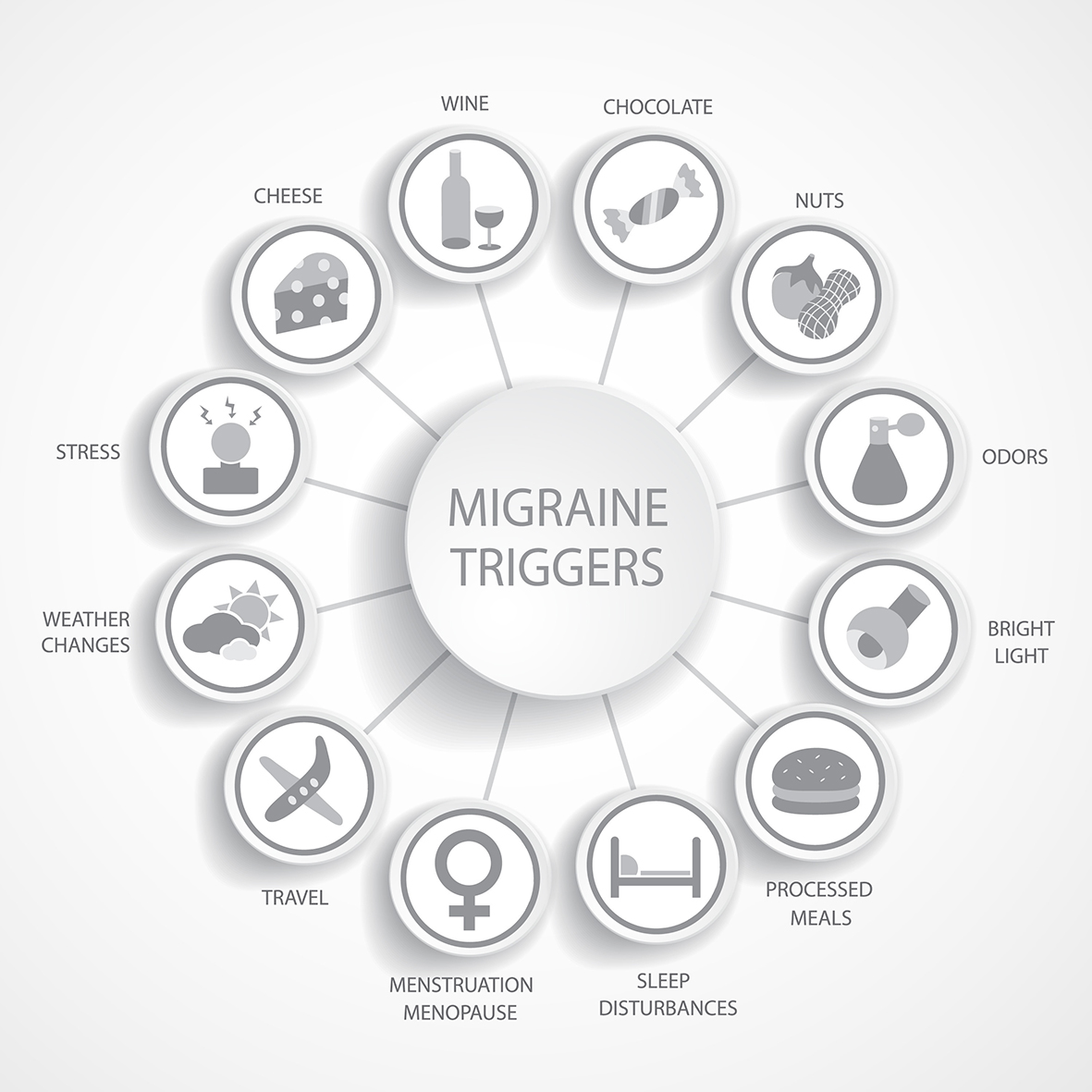Covered by OHIP?
Most services are covered by the Ontario Health Insurance Plan (OHIP)
Waiting Time
Your timeframe depends on the type of procedure.
OHIP Covered Services
Most services are covered by the Ontario Health Insurance Plan (OHIP)
WILDERMAN MEDICAL CLINIC
About Migraine Headaches
Migraine headaches are quite common, affecting approximately 28 million Americans.
More women suffer from migraines than men; they often begin to occur between the ages of 5 and 35.
An intense pounding or throbbing pain is felt on either side of the head, the front of the head, or the whole head, and is typically accompanied by light or sound sensitivity, vomiting, and nausea.
Physical activity usually makes the pain worse, so sufferers often cope by lying down in a dark, quiet room.
Other symptoms may include abdominal pain, appetite loss, feeling very warm or very cold, fatigue, paleness, blurred vision, dizziness, diarrhea, and, rarely, fever.
Although migraines may be accompanied by nasal congestion, runny nose, or sinus pain, they should not be confused with sinus headaches, which occur with a sinus infection.
Migraines can occur anywhere from less than once per month to four times per month or more and typically last between four hours and three days. Migraine pain usually develops gradually and then goes away gradually.
Although the exact causes of migraines are unknown, it appears that they are genetic and that sufferers inherit sensitivities to migraine triggers such as bright lights, fatigue, and changes in the weather.
These headaches are also triggered by emotional stress, sensitivity to certain chemicals and preservatives in food, caffeine, menstrual periods, missing meals, and changes in sleep patterns.
Several medical conditions are also associated with migraines, including hypertension, stroke, asthma, and others.
Migraines occur when nerve cells in the brain send pulses to the blood vessels that cause them to constrict and then expand (dilate), accompanied by the release of inflammatory factors, causing pain.
Migraine Triggers
Migraine headaches are either classified as migraine with aura (“classic migraines”) or migraine without aura (“common migraines”). Migraines with aura include a sort of warning sign that occurs one hour before the start of the migraine and lasts from 15 minutes to one hour.
An aura may be visual (wavy or jagged lines, temporary vision loss, blind spots, bright or flashing lights, distorted vision) or affect the other senses, such as ringing in the ears and smelling strange odors.
In rare cases, numbness or tingling in the lips, lower face, or fingers, and sometimes even temporary paralysis on one side, may occur. However, migraines without aura are much more common, occurring in about 80% of cases.
These patients sometimes experience mental fuzziness, mood changes, or fatigue prior to the onset of their migraine.

Although migraines are a chronic condition without a cure, people who suffer from them can prevent the frequency of their headaches by avoiding their particular triggers, such as alcohol or certain foods, employing stress management techniques, and eating and sleeping regularly.
Maintaining a headache diary is a very useful technique to identify triggers and helpful measures. Over-the-counter medications, such as aspirin or Tylenol, can provide effective pain relief for some.
Several medications may also be able to stop the headache process at the first sign of a migraine.
A doctor may be able to prescribe preventative medication in more severe cases; these medications are taken on a daily basis.
Our office provides multidisciplinary assessments by a pain specialist as well as we offer nerve block injections with or without cortisone, Botulinum Toxin For Migraines, medications, active exercises, Biofeedback, psychotherapy, and TENS/MET devices for those who suffer from migraines.

